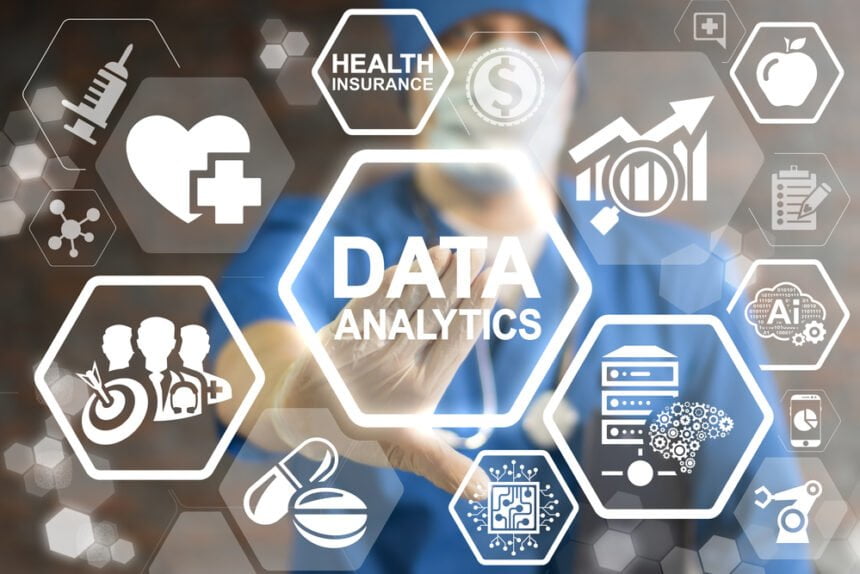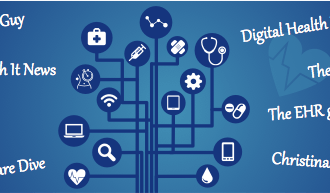Today, healthcare costs are much higher than they should be and have been growing steadily over the past 20 years. In fact, according to a study by McKinsey, healthcare expenses represent nearly 17.6% of United States’ GDP. Due to the rising cost of healthcare, it’s time to look at smart, data-driven ideas.
From autonomous cars to Internet of Things, big data has percolated almost every industry. It’s no surprise that the healthcare industry, with its large amount of data, is on the verge of big data-driven transformation, perhaps more than any other field.
Healthcare analytics has the potential to reduce treatment costs, predict outbreak of epidemics as well as preventable diseases and improve the quality of life. Here are 5 examples of how big data analytics in healthcare can help save lives.
1. Intelligent Staffing
One of the most common problem shift managers face is to staff the optimal number of people for any given period of time. If you put too many workers, it will increase the labor costs. If you staff too few people, it can lead to poor patient care.
Big data is helping solve this problem in a few hospitals in Paris. According to Forbes, 4 hospitals that are part of Assistance Publique-Hôpitaux de Paris, are using data analytics to predict the number of patients at each hospital, on an hourly as well as daily basis.
Data scientists have run a time-series analysis over 10 years of hospital admissions records to detect patterns in admission rates and predict future admission trends. They’ve used this information to build a simple web-based interface, enabling doctors, nurses and hospital administration staff to forecast visit and admission rates for the next 15 days.
This has reduced waiting times for patients and improved patient care.
2. Real-time alerting
Clinical decision support (CDS) software analyzes medical data in real-time and provides instant insights to healthcare practitioners to make prescriptive decisions.
However, doctors want to help patients stay away from hospitals, unless necessary, to avoid costly in-house treatments. Consequently, personal analytics devices are becoming a new way of healthcare delivery. Wearables collect patient data continuously and send them to the cloud.
This allows doctors to spot unexpected patterns among individual patients and take action quickly. For example, if a patient’s blood pressure increases alarmingly, then the doctor will be alerted about it, and they can reach the patient to administer measures to lower the blood pressure.
Another example is that of Asthmapolis, a GPS-enabled inhaler that can help identify asthma trends for individuals as well as general public. Its data is being used along with information from CDC to develop better treatment plans for asthma patients.
Doctors can also identify macro-trends among general public by analyzing the aggregated data in a socio-economic context and modifying delivery strategies accordingly. Even healthcare institutions can analyze this massive data stream and be ready for outbreak of epidemics.
3. Preventing opioid abuse
Opioid abuse is a major problem in US. In fact, overdoses from misused opioids have caused more deaths in US than those caused by road accidents.
Once again, big data analytics is helping solve this grave problem. Data scientists at the Blue Cross Blue Shield are working with Big data experts at Fuzzy Logix to analyze years of insurance and pharmacy data and come up with algorithms to identify at-risk cases. As a result, they’ve identified 742 risk factors that can be used to predict whether someone runs a risk of opioid abuse.
Although it’s tricky to reach out to at-risk individuals and prevent them from developing a drug problem, the project offers hope to reduce addiction-related deaths and healthcare expenses.
4. Fighting cancer
Medical researchers can use the massive amounts of data on treatment plans and recovery rates of cancer patients to identify the ones with the highest success rates across the world. For example, they can examine tumor samples in blood banks and link them to patient treatment records.
They can use this information to see how certain mutations and cancer proteins interact with different treatments, and discover trends that give better patient outcomes. For example, Desipramine, an antidepressant, was found to help cure certain types of lung cancer.
However, to speed up such discoveries, it’s essential to link up patient databases from different institutions such as hospitals, universities, and nonprofits. Then researchers will be able to access biopsy reports from other institutions.
They can even genetically sequence cancer tissue samples from clinical trial patients and make the data available to a wider cancer database.
5. Telemedicine
Although telemedicine has been around for over 40 years, it’s only today, with the availability of online video conferences, smartphones and wireless devices that it has come into its own.
Telemedicine has become an effective tool for primary consultations and initial diagnosis, remote patient monitoring, and medical education for health professionals.
In fact, clinicians are even using it to deliver personalized treatment plans and prevent hospitalization or re-admission.
By keeping patients away from hospitals, telemedicine is helping reduce healthcare costs and provide better quality of life. Patients don’t have to wait for long, and doctors don’t have to waste time on unnecessary consultation or paperwork. It even makes healthcare more accessible – patients’ health can be monitored and treated anywhere, anytime.
Wrapping up
These examples show that big data analytics can play a crucial role in helping patients get healthcare at a lower cost, as well as enable healthcare professionals to improve patient outcomes. The key is to develop medical applications of data, as they can not only save money but more importantly, save lives.







